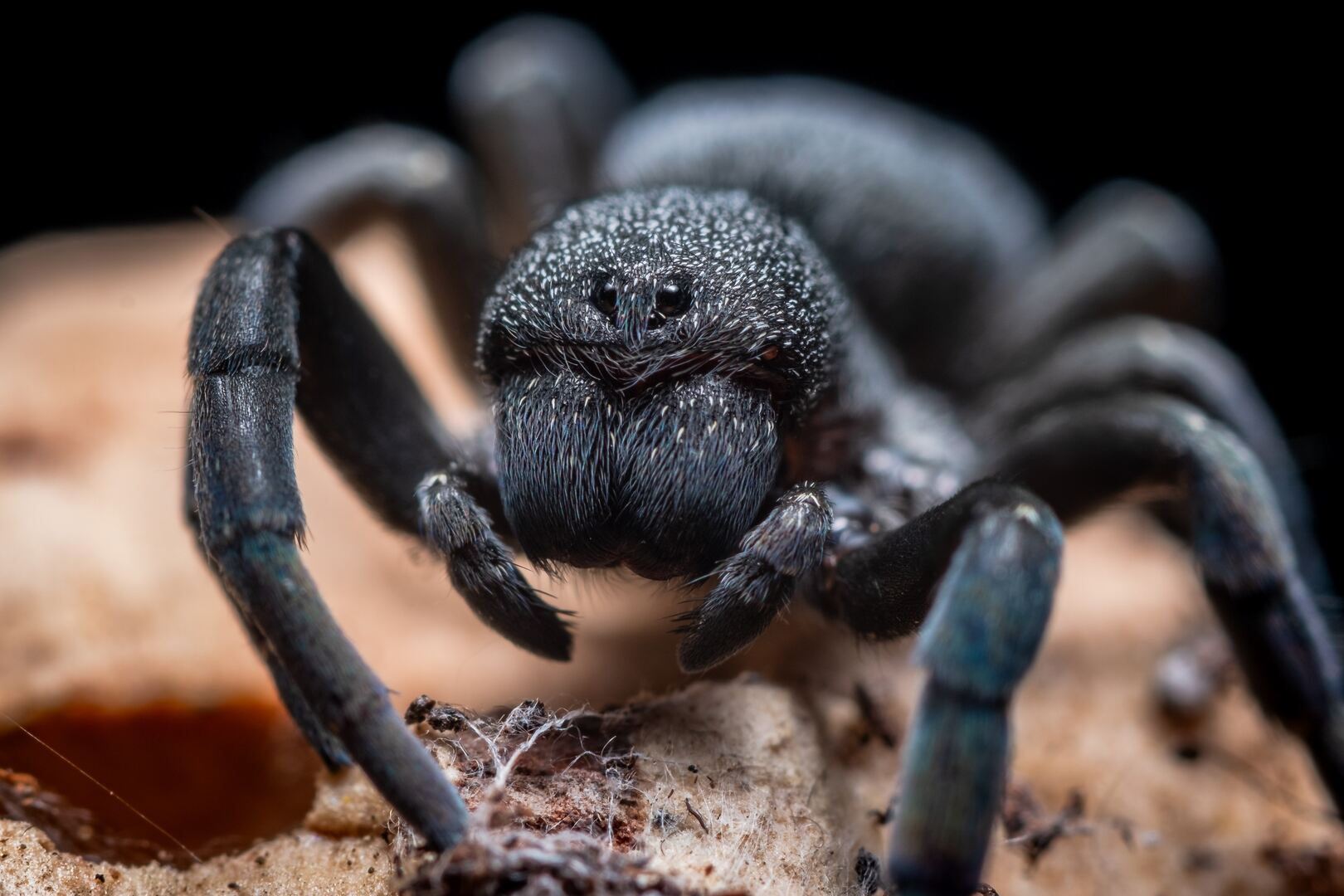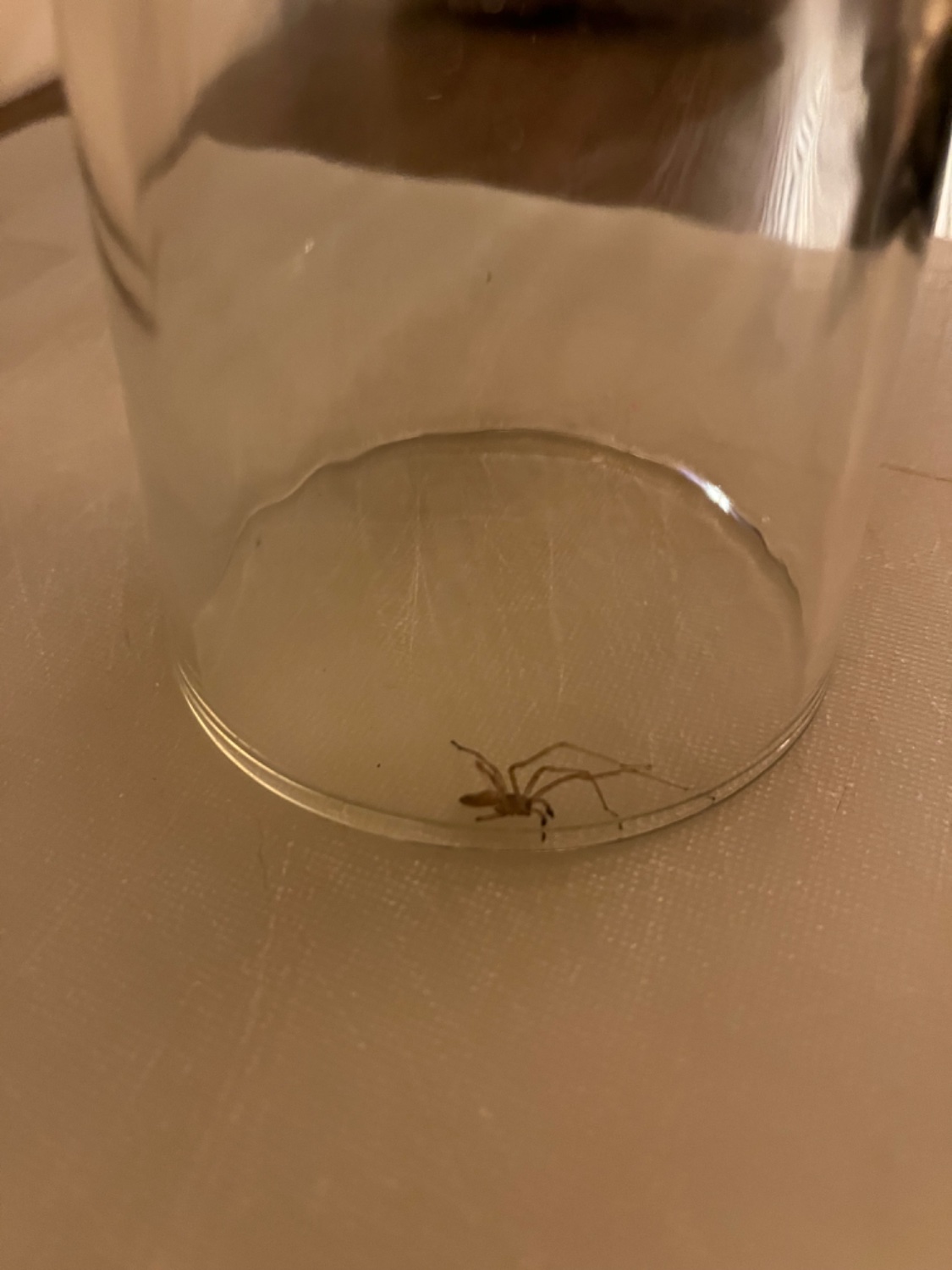Cheiracanthium mildei would be my guess. But those usually don't jump. (Hard to tell/ not an expert)
Spiders

Discover, Discuss, and Delve into the World of Spiders!
Rules:
-
Geographic Location is Mandatory: When requesting an identification of any living organism, it is crucial to provide the geographic location where the organism was found. This information is essential for accurate identifications.
-
No Speculation on Medical Significance: Under no circumstances should members speculate about the medical significance of spiders or any other organisms during identification discussions. Medical-related advice should be sought from appropriate healthcare professionals.
-
Avoid Misidentification and Misinformation: We strongly discourage spreading misinformation and misidentifications. If you are unsure about an identification, it is better not to guess. Instead, ask for help from knowledgeable members or professionals.
-
Respectful and Professional Communication: Treat all members with respect and professionalism. Engage in constructive discussions and avoid offensive language or behavior.
-
Follow the Sidebar Guidelines: Make sure to review and follow the guidelines provided in the forum sidebar. This includes rules, helpful resources, and any specific instructions for posting.
-
Cite Sources and Provide Evidence: When sharing information or making claims, try to back them up with credible sources or evidence whenever possible.
-
Avoid Self-Promotion and Spam: This forum is not a platform for self-promotion or spam. Stay on-topic and contribute meaningfully to discussions.
-
Keep it Relevant: Make sure your posts and comments are relevant to the community's focus and goals.
-
Report Violations: If you come across any posts or comments that violate the rules or guidelines, please report them for appropriate action.
Remember that our goal is to create a serious and professional community focused on accurate identifications and meaningful discussions. By adhering to these rules, we can maintain a respectful and knowledgeable environment for everyone. Welcome to our community!
Yes, that would be my 2nd guess. And it's very close.
That’s looks a lot like it, but a smaller one than pictures. The abdomen was pretty small, but those long fat ended pedipalps look similar. Sounds like they’re not deadly but painful bite and they do bite when handled so glad I didn’t take a chance. Thanks for the help!
From the general shape and leg proportion I'd guess something in Tetragnathidae. Though that doesn't really fit with jumping.
But a better picture would be needed for a proper ID.
Thanks. Yeah I couldn’t get a better pic unfortunately. It does look like some of the pics of that species definitely “long-jawed”. Long pedipalps.
I agree it looks like tetragnathid too. Def a male, won't be able to ID it much more than that without a microscope.
It's absolutely harmless.
It's Max.
Sorry Max. I hope they grow their legs back and soon.
Identified as a silly little guy
Looks like a brown recluse. What would you say is the size? Nickel or quarter sized?
The size and color make me think “black footed yellow sac spider”, a.k.a. Cheiracanthium Inclusum, but those aren’t known to jump. They can be quick runners though.
Wolf spider most likely. Which? I have no clue. I see them all the time too. Their bites last a month or more when I've gotten bitten.
Thanks! I’ll take a look again. The wolf spider pics I saw looked like tarantulas.
Oh you're in for a fun spider fact now!
In German (and probably more European languages) we have a spider called the "Tarantel" (Lycosa tarantula) which is one of the largest wolf spiders (and just general largest spider) in Europe.
So the entire family of tarantulas (in English) got their name from a wolf spider initially. Probably named by European explorers that didn't know any better
Woah! That’s a big spider but looks kinda cute haha. Thanks for the fun fact.
I got bitten by a couple of these in San Clemente, caught one and brought it to someone at UC Irvine, back when there was a Bike Religion store on campus and I was they Buyer for the chain. They said it was a wolf spider. I was told there is a good bit of variance in the species that can make them difficult to identify further, but they are common to SoCal.
What happened to the bite? Just painful or any necrotic flesh or other symptoms?
Just painful, but deeply so. It looked about like a mosquito bite, but under the surface it went deeper and impacted muscles to a minor extent for around a month. I was commuting full time by bicycle and it had noticeable effects.
I was told there is a good bit of variance in the species that can make them difficult to identify further, but they are common to SoCal.
That's all correct. Wolf spiders are the second biggest family of spiders after the jumping spiders. And they are pretty much common in every part of the world that has spiders.
And while they are incredibly diverse within their family, the family itself is quite easy to identify (with only a few other families being false postives, like the aptly named false wolf spiders).
That said, while the OP's picture isn't good enough for an ID, you can rule out a lot of what it isn't and that includes wolf spiders. Their legs are usually more stumpy and don't reach the proportions of the front legs shown in the picture.
What do you think it might be then? Thanks
See the other top level comments.
Scary fucker
If it weren’t for those long pedipalps I would have been so concerned with touching it.
